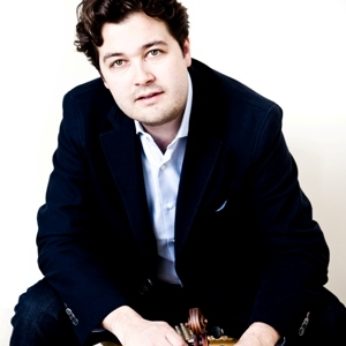Composer: Johannes Brahms (b. 1833 - d. 1897)
Performance date: 03/07/2014
Venue: Bantry Library
Composition Year: 1894
Duration: 00:21:03
Recording Engineer: Richard McCullough, RTE
Instrumentation: va, pf
Instrumentation Category:Duo
Artists:
Lawrence Power -
[viola]
Simon Crawford-Phillips -
[piano]

When Brahms completed his G major String Quintet, the
one with the significant opus number, he declared it was his last work, drew up
a will and began to go through his unpublished manuscripts, destroying
everything that he did not want to publish. Luckily for posterity he went to
Meinigen in 1891 to hear the famous orchestra under its new conductor, and
there he was struck by the beauty of the playing of clarinettist Richard
Mühlfeld. The result was the Clarinet Trio, the Clarinet Quintet and three
years later the two clarinet sonatas. On publication Brahms provided
alternative viola parts for all four works, and for the sonatas, violin parts
as well. This was common practice to ensure the widest possible circulation of
the scores. Brahms lavished great care on the sonatas’ viola parts, new
figuration, double-stopping and even extensions of the melody in some places. Violists
have been grateful ever since.
The Brahms Viola Sonatas are radical late works, completely free in their treatment of formal
models and equally liberated in their expression. The music seems unconstrained
yet highly concentrated, spare and rich, yet without resistance. No longer
do we have clear, well-outlined thematic contours nor do we have clear distinctions
between main and subsidiary themes. This is replaced by a criss-crossing of
structures based on Brahms’ concept of the developing variation. Some see these
works as deeply nostalgic, but their mastery of perfection rises above such a
shallow emotional interpretation.
The opening movement is indeed marked by its
passionate outbursts but even more by its moments of meditative beauty. Brahms
did not have much more music in him at this point, so each note is made to
speak more clearly. His style was always intensely self-critical, he would
spend years on a work, chiselling perfection from draft after draft. Here in
the first two movements of this extraordinary work he achieves miracles, most
especially in the exquisite Andante. The delicious Allegretto is a Viennese
Ländler full of charm and counterpoint, the melody appearing in imitation,
inversion and stretto, while the equally easy-going Trio turns to the minor
without any change of mood. The rondo finale brings this glorious work to a
rousing close.
Copyright © 2025 West Cork Music. All rights reserved.
Designed and developed by Matrix Internet